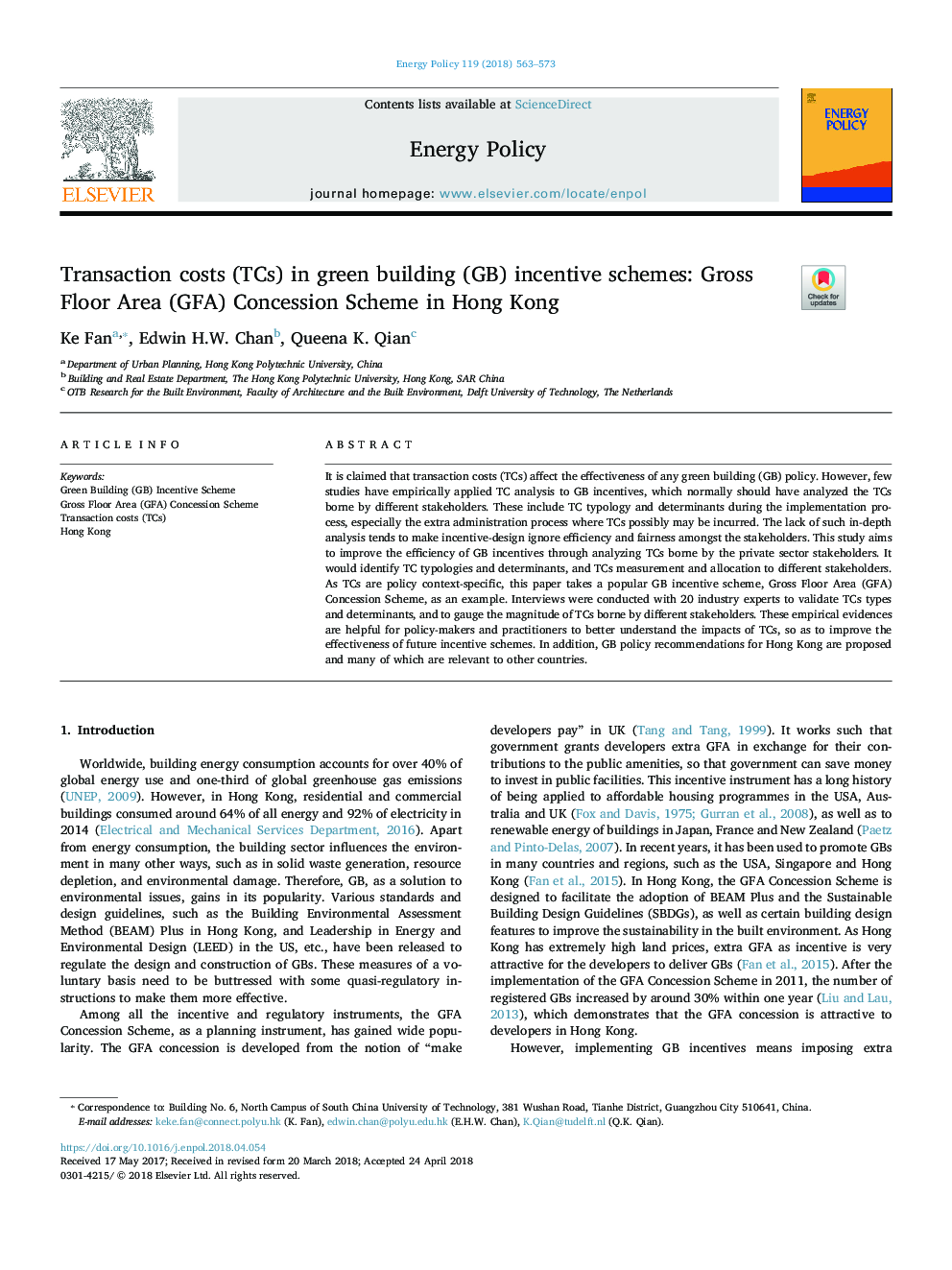| Article ID | Journal | Published Year | Pages | File Type |
|---|---|---|---|---|
| 7397130 | Energy Policy | 2018 | 11 Pages |
Abstract
It is claimed that transaction costs (TCs) affect the effectiveness of any green building (GB) policy. However, few studies have empirically applied TC analysis to GB incentives, which normally should have analyzed the TCs borne by different stakeholders. These include TC typology and determinants during the implementation process, especially the extra administration process where TCs possibly may be incurred. The lack of such in-depth analysis tends to make incentive-design ignore efficiency and fairness amongst the stakeholders. This study aims to improve the efficiency of GB incentives through analyzing TCs borne by the private sector stakeholders. It would identify TC typologies and determinants, and TCs measurement and allocation to different stakeholders. As TCs are policy context-specific, this paper takes a popular GB incentive scheme, Gross Floor Area (GFA) Concession Scheme, as an example. Interviews were conducted with 20 industry experts to validate TCs types and determinants, and to gauge the magnitude of TCs borne by different stakeholders. These empirical evidences are helpful for policy-makers and practitioners to better understand the impacts of TCs, so as to improve the effectiveness of future incentive schemes. In addition, GB policy recommendations for Hong Kong are proposed and many of which are relevant to other countries.
Keywords
Related Topics
Physical Sciences and Engineering
Energy
Energy Engineering and Power Technology
Authors
Ke Fan, Edwin H.W. Chan, Queena K. Qian,
